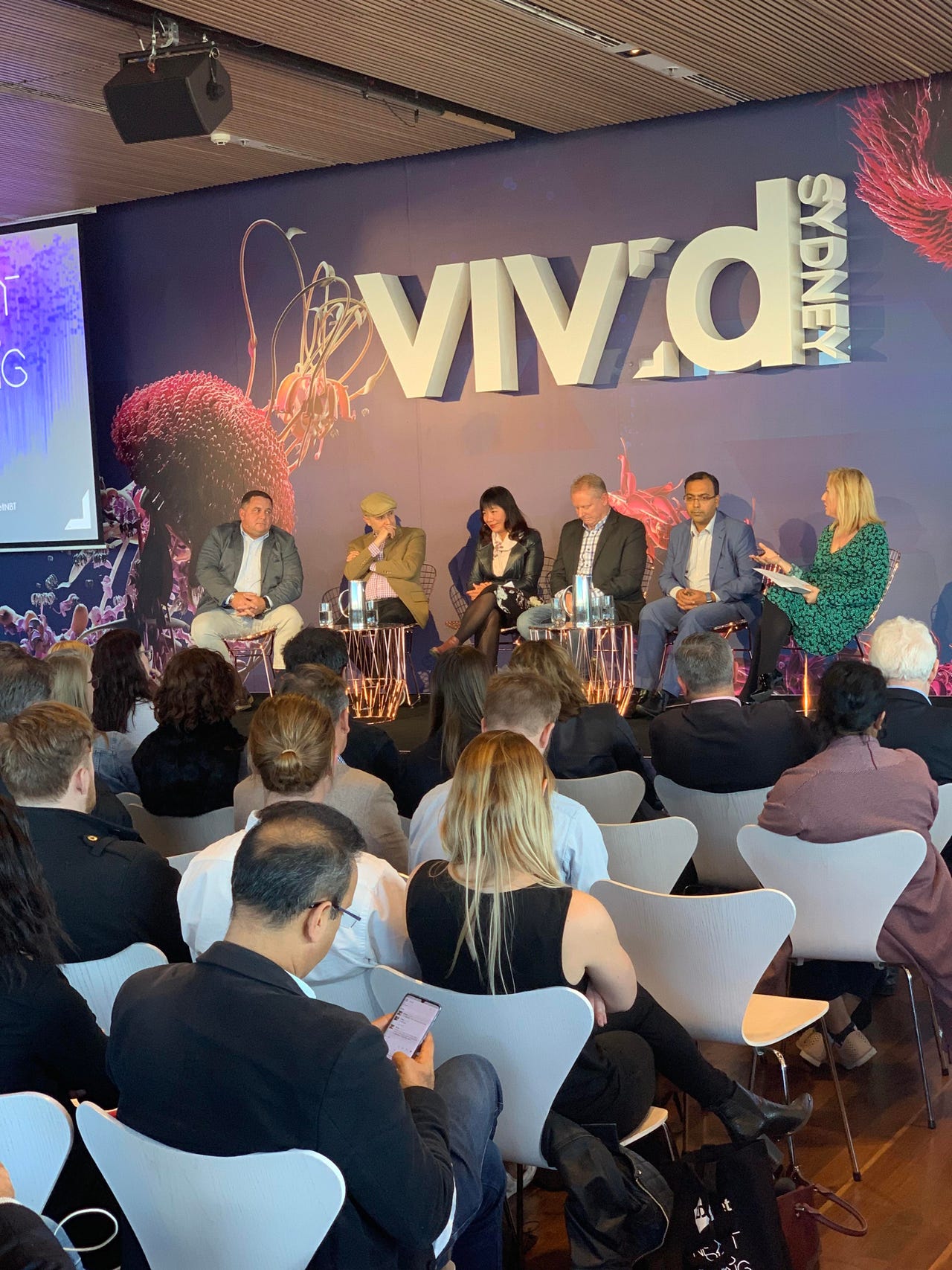The reality of AI in business – it’s not out for your job
There's even a website -- https://willrobotstakemyjob.com/ -- which tracks the ongoing percentage likelihood that AI will replace a person's job. Currently, telemarketers would seem to have it rough as there's a 99% chance that their job is under threat. Writers, on the other hand, would appear to be quite safe (from AI, at least) as there's only a 4% chance that they're on a path to disruption.
But is that the whole story? No, it's not. A few months ago, at Vivid Australia, a panel of technology experts discussed the realities of AI and the picture is nowhere near as frightening -- even for those that are the most disrupted.
"Within the next two years, over 80% of all customer service interactions are going to be automated by AI," CNET editorial director Jason Hiner said.

"One of the interesting trends to consider in that context is that when it comes to AI nothing creates demand like scarcity. In other words, the more that we automate things and the more that we take humans out of the process, the higher value we all end up putting on human interaction and human touch.
"I saw this last year with some cloud providers who were pitching to a range of SMEs, [saying] 'If you work with us you'll have a number to call and a person you can talk to until the problem is solved. You won't get a robot or a voice mail'. That pitch carried a lot of weight as it turned out. So keep this in mind, the more an organisation has AI integrated, the greater value customers and your own business will put into human interaction."
The reality is that AI will instead give organisations the opportunity to move staff into higher-value roles. Accenture managing director, analytics delivery lead APAC, and AI deliver leader, Amit Bansal, used his own organisation as an example, pointing to how the company was able to retrain 17,000 of its work force[1] during its AI rollout instead of just accepting job losses through the redundancy of certain job positions.
"After we applied a lot of AI technology and automate processes it meant that 17,000 people were no longer required. But those 17,000 people were re-trained it gave us greater capacity and scale," Bansal said.
"If you do a chatbot and you do it well, the volume of calls goes up and the customer satisfaction goes up. We developed a chatbot, but we still need people; when the bot gets a complex question, the AI routes to the support. But then we also train the support to go back to the AI and train it to handle that complex question the next time it comes in. The nature of the support agent's job is changing, but we're not losing jobs."
Making workplaces more effective and safer
It's not just in contact centres where automation has rendered some tasks obsolete. Automation has also improved efficiency for employees and the wider organisation under certain contexts. Microsoft national technology officer, Lee Hickin, highlighted a project that Microsoft worked on with a government agency, which involved leveraging AI to address data analysis challenges:
"AI is just taking away the grunt work," Hickin said. "We see a lot of scientific cases where there's a huge amount of data and it would be impossible for a single person or group of people to analyse that data and make the decisions that need to be made.
"We've done work with the Department of Primary Industry and Resources[2], who were facing a problem in which scientists are looking at hours and hours of fish videos to complete fish stock analysis, and gain insight into the state of the environment, and the impact that it is having on the fish.
"We used the AI to speed that process up [when] interpreting the data, but at the same time, the Department still needed the human scientific skills to apply higher-level thinking to the analysis. So we see the AI application as being about efficiency, and augmenting the human experience."
The Microsoft case study also highlights the single greatest benefit of AI: by removing some tasks from a person's job, it makes that job so much safer.
"Scientists in the field face potentially threatening environments -- in this case, the need to dive in waters that have large numbers of crocodiles," Hickin added. "So if you remove the person from the environment, and have the AI take that role and take on the danger, you make the work that much safer."
There are many jobs in mining, resources, research, and so on where AI is being investigated specifically for the reason that it can take on tasks that are traditionally hazardous to humans.
Overall, all panelists at Vivid Sydney agreed that staff don't need to be concerned with their jobs so long as their employers understand where the real strength of AI rests. There will be some employers that see AI purely as an opportunity to reduce costs and headcount. These executives, however, are going to put themselves into an uncompetitive position as they will no longer have access to the very necessary human skills that sit over the top of AI that handle the challenging and creative tasks that AI is incapable of.
Get more on the developments across ZDNet within the AI topic section. Plus, keep an eye out across the site in the coming months as we look to host our 2020 Vivid Ideas collaboration in Sydney, more details to follow.